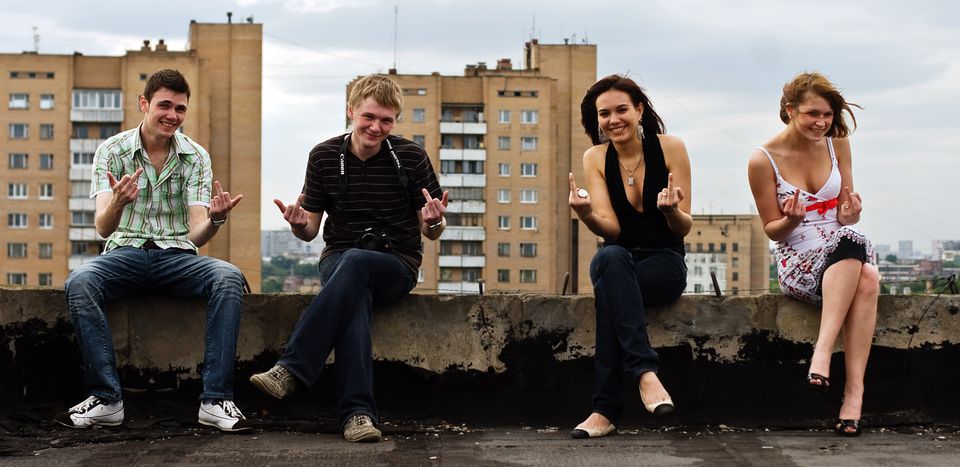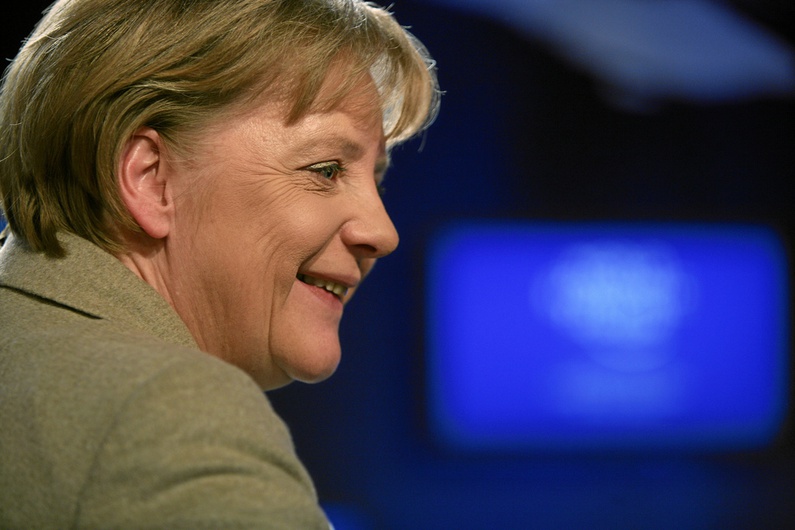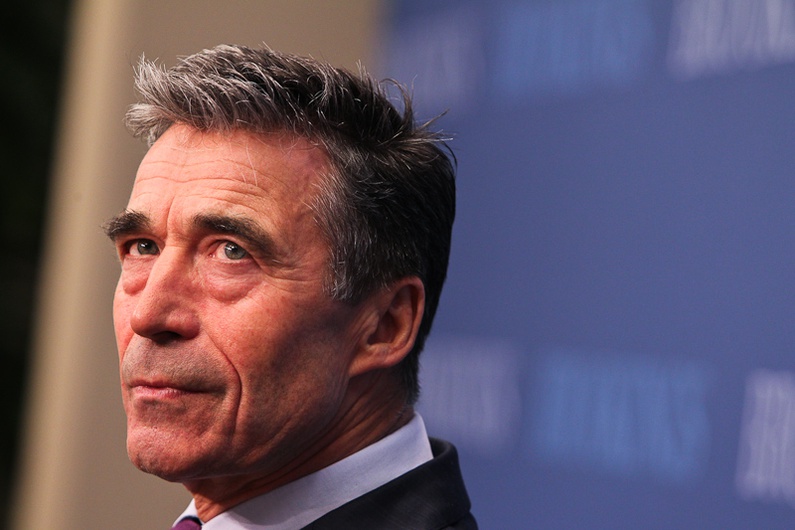
Freedom of the Press: Crossing the Line?
Published on
As the smoke clears from Charlie Hebdo incident, it worths asking: Do we permit everything in the name of freedom of press?
It's all fun and games until someone starts shooting back. Literally.
I rushed down into the basement to search for my Criminology notes from when I was studying Law in France. My queries were clear: What is considered a crime, who is considered a criminal and what is the role of the society that gives birth to the crime? Different schools of thoughts exist for the criminal man and the theory of the social environment, but it’s clear the two are linked, especially when different cultures meet. For sure, French and Muslims have met in modern history, but the French were the ones to set the rules.
Don't misunderstand me, I do not justify the shootings. Bullets can NEVER be an answer. Or this is what we think in 'Western' Europe. From the other side of the Adriatic sea, a few kilometres away from my home in Athens, in Bosnia-Herzegovina, some years ago, the wrong answer to a question about nationality could mean a bullet in the head.
Clash of Civilisations? Maybe R. R. Palmer, got it right: “The wars of kings were over; the wars of peoples had begun.” So did Samuel Huntington, the Harvard professor who wrote in his famous Foreign Affairs article that “the great divisions among humankind and the dominating source of conflict will be cultural. Conflict between civilisations will be the latest phase in the evolution of conflict in the modern world. The people of different civilisations have different views on relationships between God and man, the individual and the group, husband and wife, liberty and authority... These differences are the product of centuries."
Cultural Miscommunications and Freedom of the Press
I am European. I have studied in France and while living there in my early twenties, I never understood why the French completely excluded religion from the public sphere. I can understand the French bloody heritage of Saint Bartholomew’s massacre night (while in Greece, priests and monks in monasteries occasionally organised revolts against the Turkish occupant) that has shaped the French state and consequently, led to the rejection of religion and radical secularisation.
On the other hand, when a modern society, among others, imposes a complete ban on religious symbols in public spaces, all by knowing that hosts in its territory people of different cultures for whom religion is primordial, is this what we call freedom? Freedom for whom? On top of this, it’s ok and by the rules, to ridicule publicly what others believe as sacred. I do not understand what is so funny about making fun of other peoples sacred notions and figures, or playing with their taboos.
 We don't have to go so far for an example. A few years ago, within cafebabel.com, one Greek blogger, posted a picture of Angela Merkel, with the famous toothbrush moustache. Immediately, the Germans cried foul! Greeks, who occasionally make fun of their political leaders, scratched their head. But this was no fun for the Germans, as it obviously, hit a sensitive vein of their society.
We don't have to go so far for an example. A few years ago, within cafebabel.com, one Greek blogger, posted a picture of Angela Merkel, with the famous toothbrush moustache. Immediately, the Germans cried foul! Greeks, who occasionally make fun of their political leaders, scratched their head. But this was no fun for the Germans, as it obviously, hit a sensitive vein of their society.
Are the weights and measures of freedom of press and speech linked with our own Western history in measures like xenophobia and racism? If this is the case, maybe, those criteria, do not apply to other civilisations, simply because they have a different history and concerns. For example, the Muslim world was lived quite peaceful when it comes to the relatively peaceful coexistence between different races in the past decades, to its credit; Western civilisation achieved this after quite a lot of bloodshed.
Malcolm X, the assassinated African-American Muslim Imam and a human rights activist, said during his trip to Mecca in the '60s: "The colour-blindness of the Muslim world's religious society and the colour-blindness of the Muslim world's human society have made a greater impact and an increasing persuasion against my previous way of thinking...There were tens of thousands of pilgrims, from all over the world. They were of all colors, from blue-eyed blonds to black-skinned Africans. But we were all participating in the same ritual. Displaying a spirit of unity and brotherhood that my experiences in America led me to believe never could exist between the white and the non-white."
The Charlie Hebdo shooters were extremists, but what if more people share the same opinion that cartoons were blasphemous and insulting, since for many Muslims, any depiction of the prophet is an affront.
The Danish Case: Precursor to Charlie Hebdo?
In Denmark, after the first publication of the Mohammad cartoons in 2005. According to the Danish writer Rune Engelbreth Larsen, the first crucial event after the publication of the cartoons was a letter sent to the then Danish Prime Minister Anders Fogh Rasmussen by ambassadors from 11 (!) Muslim countries requesting a meeting concerning Muhammad cartoons.
 The ambassadors' letter contained four main points. First, a criticism of the "very discriminatory tendency towards Muslims in Denmark" and "the defamation of Islam as a religion". Second, a warning of the danger of the possible escalation of the crisis. Third, an appeal to the Prime Minister to "censure those responsible" to the extent the law permits as blasphemy is illegal in Denmark. Fourth, a request for a meeting with the Prime Minister. The Danish Prime Minister replied that "a Prime Minister cannot intervene and control the press and that the principles upon which Danish democracy is built are so self-evident, there can be no basis for convening a meeting to discuss them."
The ambassadors' letter contained four main points. First, a criticism of the "very discriminatory tendency towards Muslims in Denmark" and "the defamation of Islam as a religion". Second, a warning of the danger of the possible escalation of the crisis. Third, an appeal to the Prime Minister to "censure those responsible" to the extent the law permits as blasphemy is illegal in Denmark. Fourth, a request for a meeting with the Prime Minister. The Danish Prime Minister replied that "a Prime Minister cannot intervene and control the press and that the principles upon which Danish democracy is built are so self-evident, there can be no basis for convening a meeting to discuss them."
According to the Danish writer, despite the fact the ambassadors had never requested a meeting to discuss the principles of Danish democracy, Anders Fogh Rasmussen nevertheless claimed that the ambassadors' intentions in this matter were in conflict with Danish democracy itself.
Fügen Ok, Turkey's ambassador to Denmark pointed out: "We're not stupid; we know the Prime Minister has no authority to intervene. Our intention was to encourage him to improve the situation in the country; what happened is very serious and very provocative. This is not about closing newspapers. It's about presenting your views on the issue and trying to promote dialogue."
Larsen suggests that the Danish Prime Minister chose to pontificate to eleven ambassadors as if they were schoolchildren who simply did not understand the definition of democracy. Instead of discussing the issues they raised, and commenting on the fact that their sole request was for him to take a moral position on the issue of the cartoons.
This situation is interesting to understand the escalation of the problem in 2015. Does freedom and tolerance mean accepting otherness and the boundaries of others? The freedom of press card in this game is only half correct. Are the media that didn’t publish the cartoons, under censorship? Do the 'criminals' and the 'judges' belong in the same society? And who is who in the cartoon stories? In the cosmology of the West/ East divide, Europe can play a crucial role. By refusing to dialogue, both sides are contributing to future discord.



